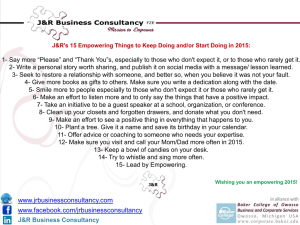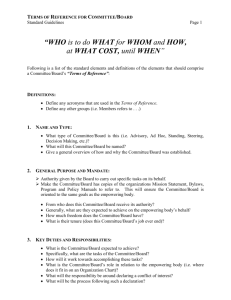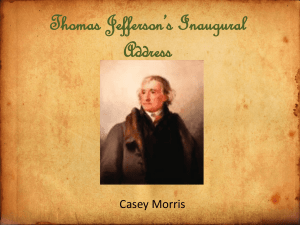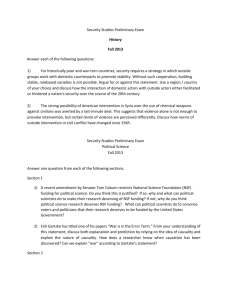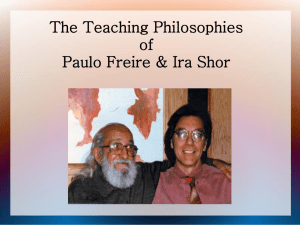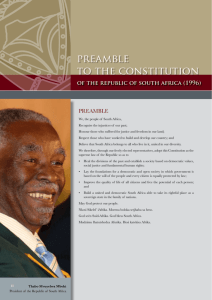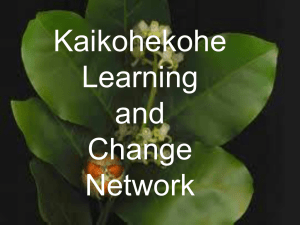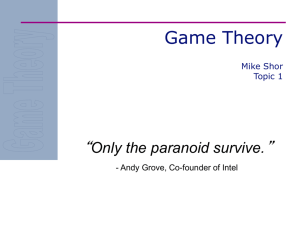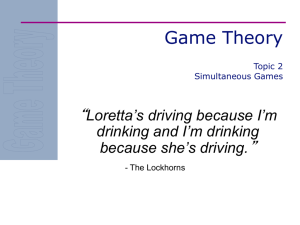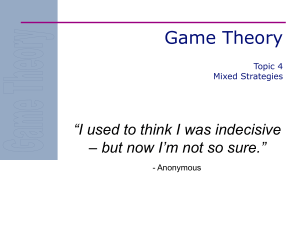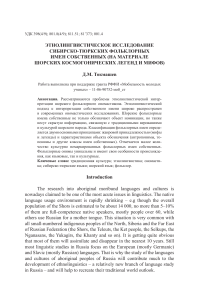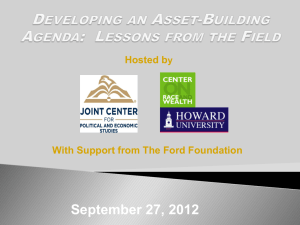EDLD_703_-_Empowering_Education-10-19-09 TR
advertisement
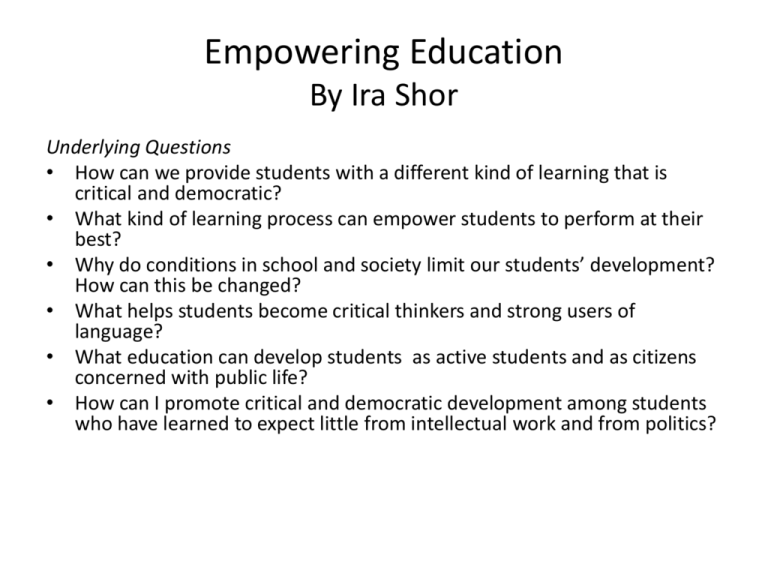
Empowering Education By Ira Shor Underlying Questions • How can we provide students with a different kind of learning that is critical and democratic? • What kind of learning process can empower students to perform at their best? • Why do conditions in school and society limit our students’ development? How can this be changed? • What helps students become critical thinkers and strong users of language? • What education can develop students as active students and as citizens concerned with public life? • How can I promote critical and democratic development among students who have learned to expect little from intellectual work and from politics? “Education is the contested terrain where people are socialized and the future of society is at stake.” On the one hand: • Education is a socializing activity organized, funded, and regulated by authorities who set a curriculum managed (or changed) in the classroom by teachers. On the other hand: • Education is a social experience for tens of millions of students who come to class with their own dreams and agendas, sometimes cooperating with and sometimes resisting the intentions of the school and the teacher. Phases of Shor’s Third Idiom “a self-evolving, non-standardized process” 1. Problem-posing 1. Generative – from the students’ culture 2. Topical – a social issue raised by teacher 3. Academic – from the body of knowledge 2. Reflect (think/write) 3. “Literacy Development/Skills Exercise” • Read-aloud, self-edit, peer review, etc. 4. Group reports/ discussion (w/teacher notes & coaching) 5. Synthesize & re-present 6. 2nd round – Literacy exercise Phases of Shor’s Third Idiom “a self-evolving, non-standardized process” 7. 2nd round – Group reports/discussion 8. Material integration – teacher input 9. Interim class evaluation 10. Dialogic lecture by teacher 11. Student response to lecture 12. Solutions, alternatives and projects To socialize students: • Education tries to teach them the shape of knowledge and current society, the meaning of past events, the possibilities for the future, and their place in the world they live in. • Teachers can present knowledge: 1. as a celebration of the existing society 2. as a falsely neutral avoidance of problems rooted in the system 3. or as a critical inquiry into power and knowledge as they relate to student experience Agenda of values for empowering education 1. 2. 3. 4. Participatory – student involvement Affective – build syllabus from student responses Problem-posing – as opposed to problem solving dialogue Situated - listen to students, marry critical thought to everyday life by examining daily themes, social issues and academic lores 5. Multicultural – using the language and perceptions of students, their diverse cultures are built into the study 6. Dialogic – mutual discussion which is a student centered, teacher directed process to develop critical thought and democratic participation. 7. Desocializing – A. In school from routine teacher-talk and student passivity to mutual discussion and student engagement B. Outside of school from the mass culture absorbed from mass media and daily life. Ex. Racism, sexism, excessive consumerism, homophobia, class prejudice 8. Democratic – uses a problem-posing method that frontloads student thought and backloads teacher commentary 9. Researching – A. Teachers research student learning in the classroom B. Students develop critical judgment in thinking examinations 10.Interdisciplinary – drawing on themes and texts that cross the curriculum 11.Activist – critical pedagogy questions the status quo, includes participatory methods, and insists that knowledge is changing and not fixed Student Obstacles to Critical Teaching • • • • • • • • Zero paradigm Knowledge in a one way discourse Passive role for students Top-down control Stifled curiosity Silence in the classroom Misbehavior Sabotaging the curriculum • • • • Student resistance Uneven levels of development Vocationalism Short time in class and on campus in an unattractive setting • Family life • Health and Nutrition Student Resources for Empowering Education • • • • • • • • • • Extra abilities hidden by their performance strike Speech Life and Work Experience Desire for Self Esteem Curiosity Democratic Attitudes Racism Sexism Business attitudes Humor and Emotional Tone Teacher Obstacles to Empowering Education • • • • • • • Traditional training Publish or perish Departmental limits Teacher burnout Teaching to the tests Fear of freedom Larger classes, rushed schedule Teacher Resources for Empowering Education • • • • • • • • Articulateness Thinking skills Love of learning Authority Conviviality Training in research Deviance credits Institutional clout Resources • Shor, Ira. Empowering Education: Critical Teaching for Social Change • Shor, Ira. Audio recording • Pay Attention • Savage Inequalities: East St. Louis http://www.youtube.com/watch?v=8mdlYaCjf2I • Children in America’s Schools, Jon Kozol http://www.youtube.com/watch?v=leysFIU2w60&fe ature=player_embedded • Rethinking Our Classrooms ???? • Rethinking Mathematics ???? Ira Shor – Quotable Quotes • “No curriculum can be neutral.” • “Students…inhabit classrooms where teachers give answers to questions nobody asked…” • “Participatory classes respect and rescue the curiosity of students.” “There are so many things that you can atone for later on… …but there is no way to atone for the theft of childhood.” Jon Kozul
